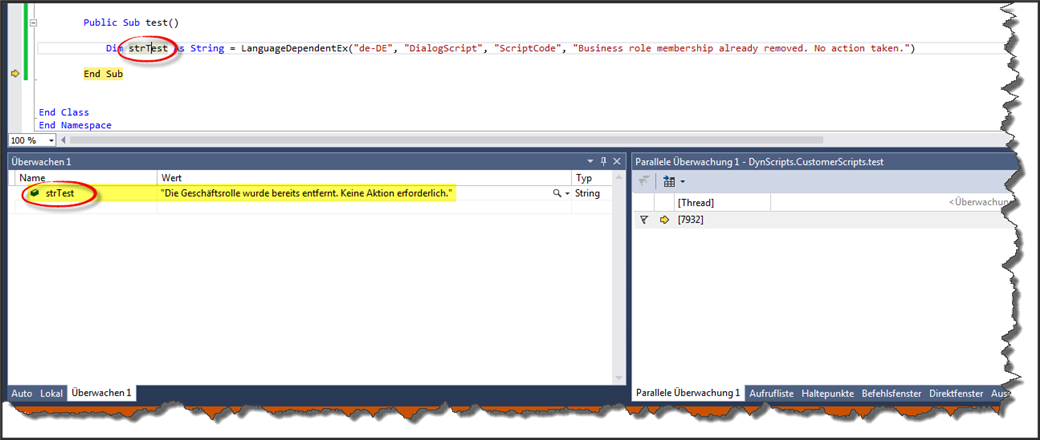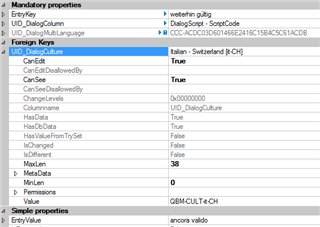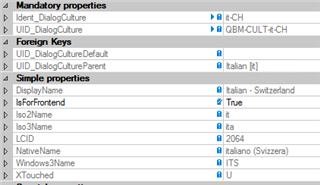Hi
I try to get the translation from within a script by using the #LD-Notation. I've the key in the DialogMultilanguage set as: "my test to translate"
Now I tried the following to get the Italian translation of the above mentioned key:
(according the documentation: http://docadmin.quest.com/identity-manager/7.1.1/configuration-guide/the-scripts-one-identity-manager/using-ld-notation/example-for-specifying-language)
Dim lang As String = "italiano"
Value = #LD[lang]("my test to translate")#
However as a result I always receive the key itself "my test to translate" and not the translated text. I tried the provided culture as:
- italiano
- it-CH
- italian
but non of them worked (also tried for different languages like French). I know that normally the square bracket is optional but in my case I need them.
I also tried with the method:
Value = LanguageDependentEx(lang, "DialogMultiLanguage", "EntryValue", "my test to translate")
but also this without success.
I'm on OneIdentity Manager version 7.1.1.
Do I miss something?
Thanks for your help
regards,
Rolf







